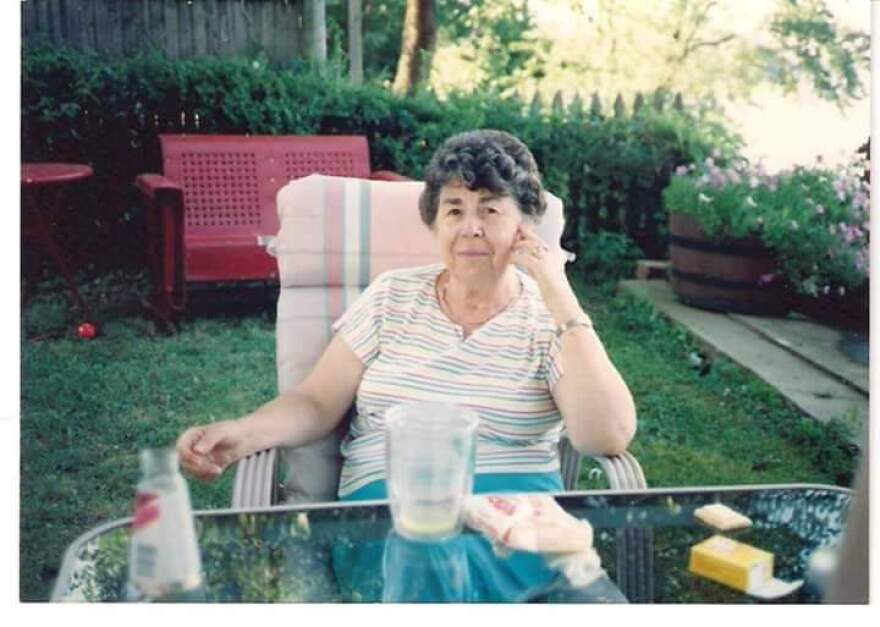We want to note the passing of an Evansville woman, an immigrant, whose experience during war in her native country prompted her to take an unusual step to boost morale here following the attacks on September 11, 2001.
Mary D. Steele Ruff, 91, died on November 2, 2019 in Evansville. She is survived by four children, four step-children, twenty one grandchildren and many great grandchildren.
We invited Mary's daughter, Julie Schembre, into the studio to talk about her mother.

As a child, Mary lived through the horror of almost daily bombings in her native Southampton, England during the Battle of Britain in World War Two. Julie picks up the story, "During World War Two, when it broke out in England, she was only twelve years old. Her world was changed. No longer feeling safe and free, there were bombs dropped on Southampton. Every family had to build a bomb shelter in their backyard that the families would go into. Over the next five or six years, she spent a lot of nights in a bomb shelter."
On the tenth anniversary of the 9-11 attacks, we interviewed Mary about the experience. Here is what she said in that 2011 interview. "Oh yes, it was an every day thing, really. I remember seeing the planes fly over and dropping their bombs. One morning we woke up and there were 14 incdendiary bombs that had been dropped in our yard. We found them the next morning."
I asked Mary in 2011 about her mother's reaction to the bombings, with three young children to care for. "Oh, she never really showed any fear. She must have been afraid with three small children and being bombed, but I never saw any fear."
It's important to note that her mother's reaction would shape the girl's attitude on how to react when your country is under attack.
Following the war, Mary joined the Women's Royal Navy Service at the age of 17. Mary became a U.S. citizen in 1963. She met an American Army veteran, Austin Steele, in 1964. They married and eventually settled in Evansville, Indiana.
It's also important to note that because Austin Steele was a military veteran, when he died in 1991, he was buried with full military honors. Those honors included the customary American flag that was given to the family following the service.
In 2001, when terrorists attacked targets in the U.S., Julie Schembre recalled that people were in shock. She said, "People couldn't figure out what to do. Everybody wanted to do something. So, our church wanted to put up a flag and there were no flags to be bought anywhere. They'd all been sold out."
But Mary Steele Ruff, survivor of horrific bombing attacks on her home as a child, knew where to find a flag.
"I told her, 'Mom, I can't think of a better day, or a better reason. By all means, fly that flag.'"
Here's what she said in that 2011 interview, "That's when I decided to give the flag that I had to our church. It was given to me. After my husband died, it was given to me....on his casket. I didn't want to take it out of the protective covering, but I guess I thought, 'I'm in America now and they need to show that flag'. I brought it back home, but I allowed it to be shown. I think that's perhaps it."

Now, anyone who has a flag that once draped a veteran family member's coffin knows the courage it took to risk it possibly being damaged or destroyed by flying it for a few days until another one could be found and purchased.
Julie Schembre is a retired Air Force veteran, who sang as a soloist with the U.S. Air Force band all over the world. She said Mary called her to ask if it would be OK to risk the damage. "I told her, 'Mom, I can't think of a better day, or a better reason. By all means, fly that flag.'"
Listen to the audio story above for a special holiday memory Julie shared about her mother.

